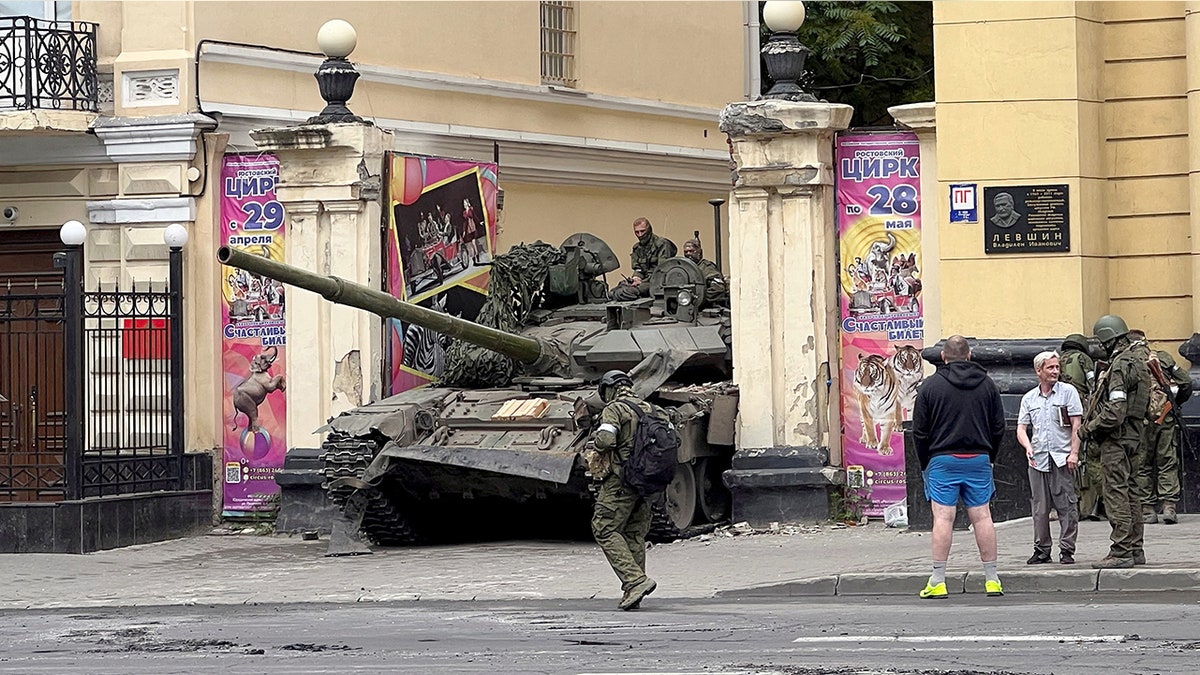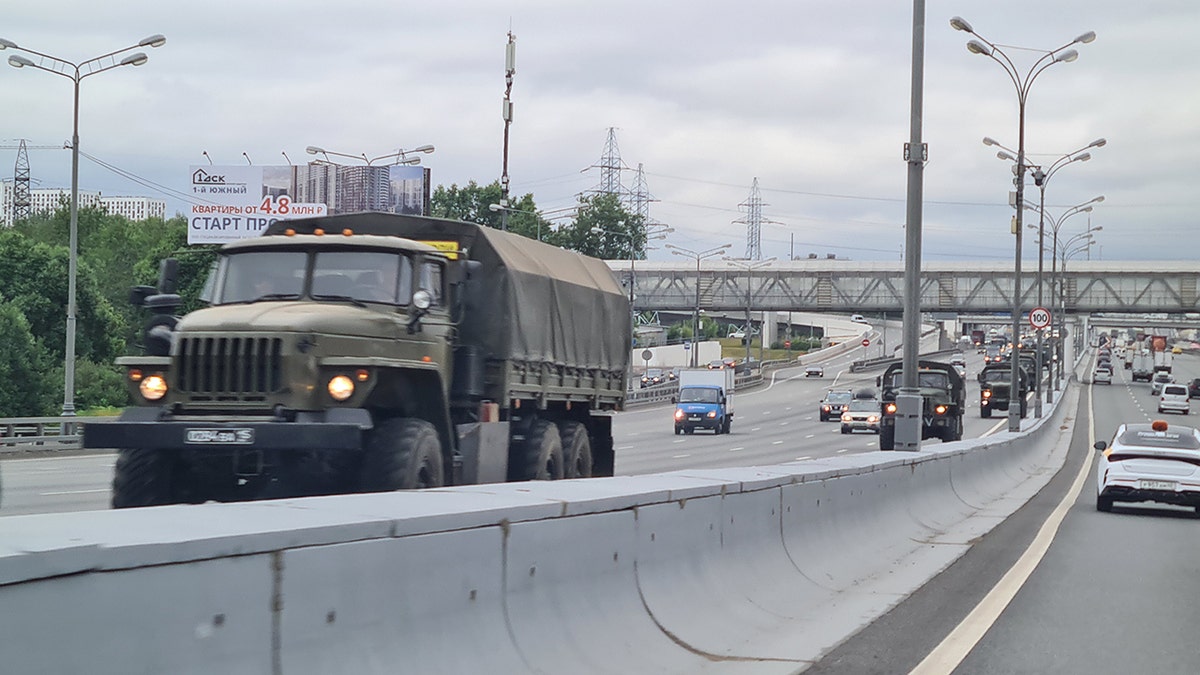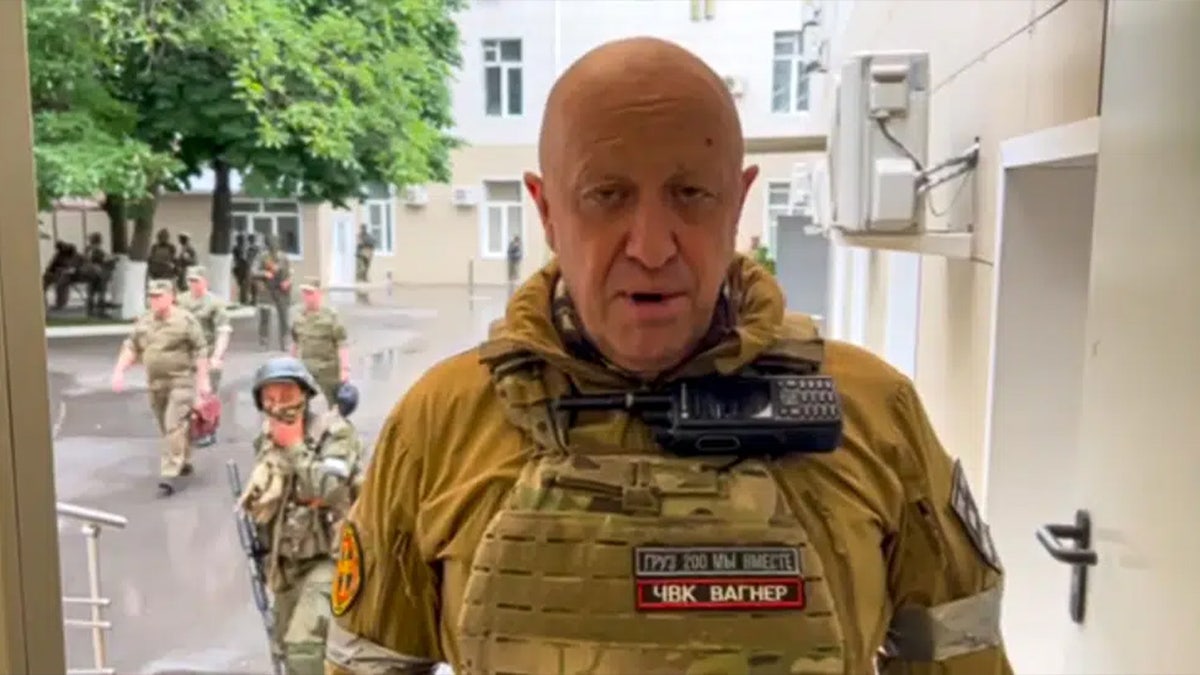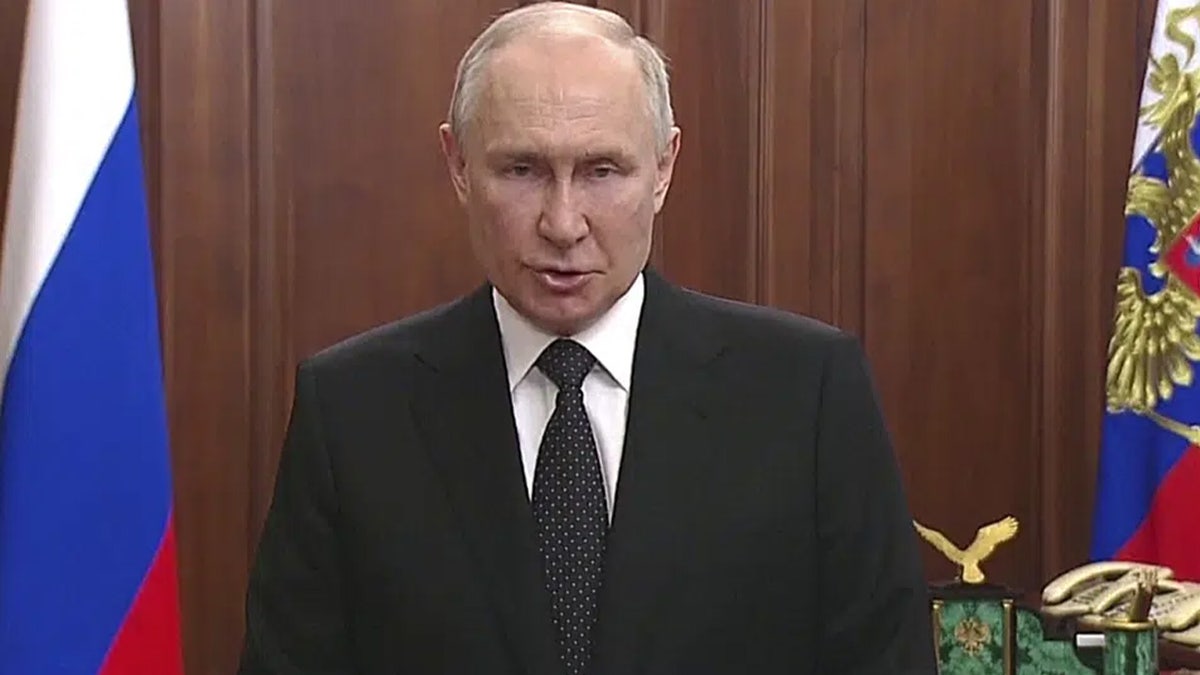The Wagner Group, a private military force led by Yevgeny Prigozhin, launched a dramatic advance into Russia, escalating tensions with the Kremlin and raising concerns about the stability of the nation. Prigozhin characterized the move as a "march for justice" against Russia's military leadership, specifically targeting Defense Minister Sergei Shoigu. The mercenary group swiftly secured control of military installations in Rostov-on-Don, a strategically vital city housing the command center for Russia's operations in Ukraine.
Wagner forces continued their northward push, progressing through Vorenezh Oblast, a region approximately 300 miles north of Rostov-on-Don. Intelligence reports indicated that the group's objective was likely Moscow. The U.K. Ministry of Defense noted a surprising lack of resistance from Russian security forces, suggesting potential acquiescence to Wagner's movements.

Wagner fighters were seen positioned on a tank near the Southern Military District headquarters in Rostov-on-Don. Further reports indicated that Wagner had also taken control of military facilities in Voronezh, although this could not be independently verified. A convoy of armed Wagner vehicles was observed moving north on the M4 motorway, a key route connecting Voronezh and Moscow, raising alarms in the Lipetsk region. Regional Governor Igor Artamonov confirmed the movement of Wagner equipment and urged residents to remain home.

In a televised address, President Vladimir Putin condemned the rebellion as a grave threat to Russia's sovereignty and promised decisive action. He described the mutiny as a betrayal of the Russian people and vowed severe consequences for those involved. Prigozhin, once a close ally of Putin, refuted accusations of treason, framing his actions as a fight against corruption and ineptitude within the military establishment.

Prigozhin accused Defense Minister Shoigu of orchestrating a missile strike on Wagner encampments in Ukraine, a claim denied by the Russian Defense Ministry. He insisted that his actions were not a coup but a necessary measure to address systemic issues within the military hierarchy. The FSB, Russia's security service, initiated a criminal investigation against Prigozhin for armed mutiny, characterizing his pronouncements as incitements to civil conflict. Despite the escalating crisis, reports indicated that Putin remained in Moscow, actively monitoring the situation.

Comments(0)
Top Comments